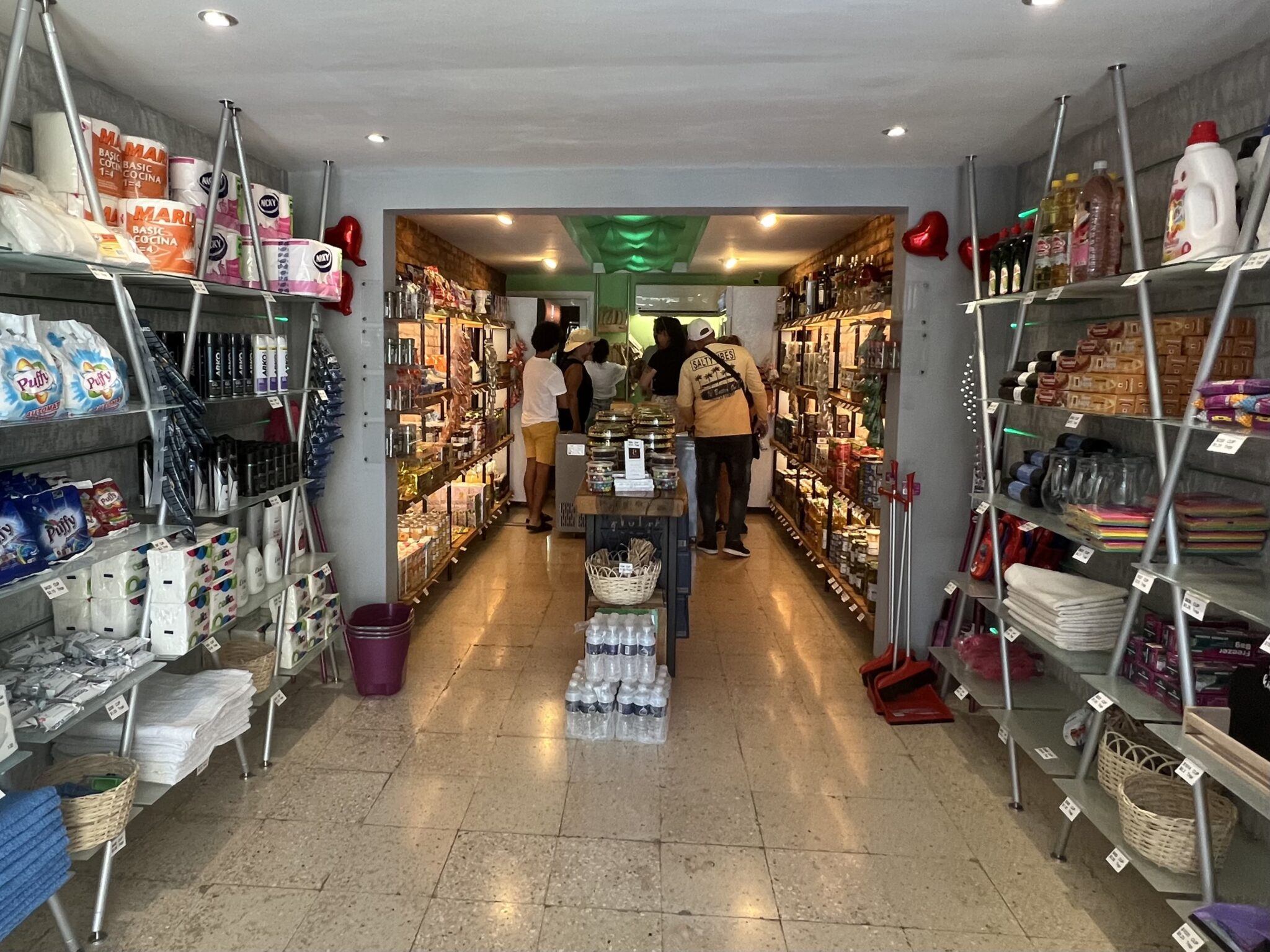Aldo Alvarez
What do MSMEs in Cuba Need to Produce More Food?

The “change in mentality” touted by Cuban leaders since 2011 does not seem to have occurred yet. The state enterprise sector will continue to bear the principal responsibility for what we will produce and eat.
By 2024, Cuba’s economic situation could be considered, at the very least, very complex.[1] During the last three years,[2] various agencies of the Cuban government have publicly expressed, on numerous occasions, that the only way to improve these conditions is to increase local production, especially that related to food.[3]
At the same time, the presidency and other institutions have claimed that “all economic actors are on the same footing” before the law and that it is necessary to promote commercial relations between all actors the economy, without differentiating between state and private entities. In my opinion, this should mean that foreign private companies and Cuban private companies should be treated equally before the law, if we all agree it is one economy,[4] one that is the result of the common effort of all the actors involved in it.
However, by the end of 2023, various internal obstacles remain that prevent the private sector from deploying its full potential and effectively enmesh itself in productive activities, especially those related to food.
The following are some of the most important obstacles that continue to hinder the productive capacity of the Cuban private sector.
Foreign Direct Investment in the Private Sector
Although the official line is that “Cuba remains open to the world, to trade and investment”[5] and that “the political will of the Cuban government is clear that compatriots living abroad can also participate in the updating of our model and the economic development of the country,”[6] and that the regulations authorize it, to date there are no concrete examples of foreign direct investment in the private sector.
This means:
- A considerable disadvantage for the country in attracting Foreign Direct Investment (FDI) as compared to other nations in the region.[7]
- A disadvantage for non-state actors (FGNE by its Spanish acronym) in financing their projects.
- An obstacle for Cubans residing abroad to better participate in national economic life.
- A scenario that promotes informal arrangements by the Cuban private sector with its potential international partners.
Without formal recognition that they can accept FDI, an internally established limit – not foreign sanctions – constrains the capacities and potential of Cuban private enterprises, preventing their development and, consequently, an enhanced contribution to the Cuban economy.
Association with the State Sector to Rescue Idle Production
Generally, “cooperative production contracts” are the most common way for the private sector to link up with the state sector.
Unfortunately, this “cooperative production” usually is limited to supplying the raw materials needed by the state enterprise to produce because of the inability of the state to supply its own enterprises directly as a result of:
- Lack of access to foreign currency.
- United States sanctions, which prevent state enterprises from operating routinely within the international financial-banking system.
- A history of non-payments to regular suppliers and commercial partners due to dysfunction inherent to the Cuban economy.
In these cases of “cooperative production”, the state enterprise pays the private supplier for importing the raw materials it needs. In other cases, merchandise is delivered by the state enterprise to and marketed by the private company, which pays the state enterprise for production services.
As a practical matter, the private sector is not able to participate in the domestic production of goods, exercising management responsibility and controlling the production activity. Consequently, the current form of relations between the private companies and the state enterprises does not allow the private sector companies to expand their activities and abilities within the legally authorized framework and increase their contribution to the economy.
Some of the commercial arrangements in which the Cuban private sector would like to participate:
- Leasing contracts for idle production facilities, such as abandoned warehouses and other abandoned capital plant, which allow for their utilization by the private company in exchange for a fixed payment or a variable percentage, depending on the financial return from the activity, similar to how state enterprises transact with certain foreign private companies.
- Joint administration contracts between the state sector and the private company, allowing one or more companies to actively and directly participate in the development and administration of production activity.
- Participation in association/collaboration contracts (or even cooperative production contracts).
- Other legal arrangements, including usufruct or bailment.
None of these legal arrangements consist of an outright sale of the “means of production” to the private sector, nor the loss of control by the state. But it is an important change in business operations that would advance the objectives identified by the National Assembly in July 2023 as regards food production.[8]
For production chains to operate, a different relationship is required between the ministries and Cuban private companies, which continue to be frozen out of opportunities that have been available to foreign private companies for years.

The “change of mentality” touted by Cuban leaders since 2011[9]on these issues does not seem to have occurred yet. As we have learned from the experience of the last few years focusing on concrete examples, “these alternative do not result in ruin”. Nor do they require the redirection of public funds meant to improve the quality of life of Cuban society from other pressing needs such as Education or Public Health.
Access to a Formal Exchange Market
For a market to exist it needs two things: sellers and purchasers.
In addition to the regulatory obstacles faced by the Cuban private sector, the lack of a formal currency exchange market for the Cuban peso imposes a further significant burden. All market participants (whether State or private) must engage in sophisticated calculations in order to compute payments for suppliers. Cuban companies use the Cuban currency exchange rates from the informal market adjusted using a complex formula and accessing data from the currency exchanges in the international markets.
Accounting and taxation present other challenges for these private sector companies and there are always disagreements and debates among the private accountants, as well as the regulators.
The resulting distortions are well known and have been acknowledged by various officials of the Ministry of Economy and Planning (MEP, by its Spanish acronym),[10] but, to date, no steps have been taken to address the current situation.[11]
The process of “bancarización” (banking the substantial numbers of unbanked) ,[12] a societal objective for providing financial services to the population, permitting the tracing of financial transactions to create transparency and reducing cash circulation, poses new challenges for the private sector in replenishing its stock of foreign currency, as discussed below. It continues to be a problem, despite the fact that the authorities promise the policy will be carried out “gradually and where conditions allow it”.[13]
In a scenario, such as Cuba’s, where private economic actors are required to deposit cash with the Cuban financial system, a system without an official fluctuating currency exchange market, but instead with a government set rate of 120 pesos per dollars (less than half of what the rate of the informal the fluctuating currency exchange market), then the new policy of “bancarización” becomes an additional obstacle for the private sector to obtain and retain operating capital
It is public knowledge that the informal currency market in Cuba today generates a financial surcharge that is reflected in the price of a product, both in imports of finished products, international trade operations such as those carried out for decades by state enterprises such as TRD or CIMEX[14], including supplies, raw materials, machinery or spare parts.
A formal exchange market, operated by the Cuban banking financial system and with real backing for the currencies it handles, would result in:
- Significant financial savings and better price accuracy that would translate into better prices for consumers.
- Greater accounting and tax transparency, and therefore less disputes between the National Tax Administration Office (ONAT, by its Spanish acronym) and tax preparers.
- The formalization of financial operations, including international ones, that allow greater transparency and reliability for banks.
- Better control by the Cuban financial system over financial assets and financial tools used by the private sector.
Access to Property and Land
In 2019, the Cuban authorities admitted that “with 38% of the land, private producers produce almost 80% of all Cuban food production.”[15] In 2023, the percentage was at the very least equivalent, if not higher. However, private Cuban companies still encounter problems acquiring and developing land due to regulatory stumbling blocks. Not only are they impeded from buying land and dedicating it to agricultural production, but they cannot find a way to purchase products from an independent farmer, an agricultural cooperative or any similar productive entity.
Apparently, there is yet no clarity on whether or not there can be private ownership of commercial real estate, including by the authorized private sector limited liability companies. Without clear ownership rights in real estate and productive assets, an industrialized private sector, increased food production and distribution, and the related benefit of a competitive market producing lower prices for consumers is almost impossible.
The Limits of Current Regulations on Cuban Private Companies
Government officials commonly argue that the regulatory framework fencing in the private sector is intended to “prevent the concentration of wealth and property in MSMEs.”[16] However, this should also be considered a “penalty for successful activity.”
The norm in other jurisdictions, even in those with a political system similar to Cuba’s, is that when a company grows so as to employ a workforce in excess of that falling within the definition of an MSME – usually from 100 to 400 employees, although 250 is the most common number – it loses government benefits, economic subsidies and tax exemptions.[17] But, it can continue to grow as long as market conditions and its own operations allow it.
In the case of Cuba, if a private enterprise is productive, efficient, profitable, pays taxes and contributes to the economy, instead of being allowed to continue its growth, the regulatory framework, is designed to force it to stagnate, which may encourage it to find extralegal solutions to continue operations. This is too often the case in Cuba.
The growth of successful private Cuban companies is stunted by the very norms that have created them. In this sense, although technological advances permit more and more production with fewer workers, as compared to even a few years ago, there is no way to structure a significant operation under these limitations and others established by current law.
Final Considerations
So long as these issues (and many others that space does not permit us to cover) remain unresolved the conditions necessary for private companies to be able to produce what society demands and needs. Therefore, as has been the case until now, the Cuban state sector will continue to bear the greatest responsibility for what we will produce and eat in 2024.
Let us hope that these issues and other measures necessary for the Cuban private sector to flourish and contribute to the national economy are resolved in the shortest time possible. We need to provide food for our society and fill the many other needs of our population so that we can finally say with confidence that 2024 will be different or even a better year.
[1] https://oncubanews.com/opinion/columnas/contrapesos/juan-triana-cordovi-2024-va-a-ser-durisimo/
[4] https://www.presidencia.gob.cu/es/noticias/hay-muchas-cosas-que-si-se-pueden-hacer/
[5] https://cubaminrex.cu/es/cuba-continua-abierta-al-mundo-al-comercio-y-la-inversion
[6] https://cubaminrex.cu/es/cuba-pais-de-oportunidades
[8]http://www.chinacelacforum.org/esp/zgtlmjlbgjgx_2/202308/t20230803_11121996.htm
[14] http://www.cubadebate.cu/especiales/2020/07/20/guia-rapida-sobre-las-tiendas-en-mlc-en-cuba/
Originally published in Horizonte Cubano on March 3, 2024.